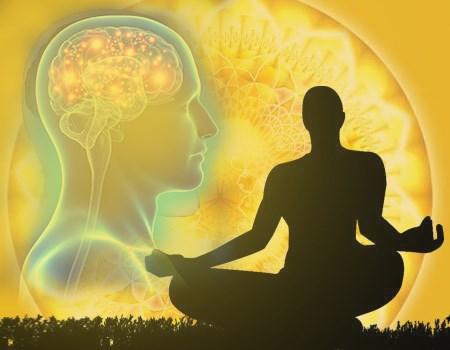
1 minute read
Yoga helps support mental and spiritual well being Yoga Moment with
Heidi Pfleger
Yoga is well known for its physical benefits but it also provides many neurological and psychological benefits to support your mental health and well-being. In fact, yoga was developed more for mental and spiritual well-being than for physical health. The ultimate goal in yoga has traditionally been to experience expanded consciousness and enlightenment rather than achieve a perfect headstand or downward dog Achieving a sense of inner peace took priority over perfecting a pose.
Advertisement
Achieving expanded consciousness and enlightenment (known as Samadhi) starts in the mind This is difficult to do if you have the ‘monkey mind’ that many of us experience. The ancient sage Patanjali addressed the ‘monkey mind’ when he defined yoga as a way to create ‘cessation of fluctuations in the mind.’ I know from my own experience, that I needed to find ways to stop all the random thoughts that went on in my head Yoga has helped me immensely with achieving that and being able to share my understanding in stilling my mind was one of the reasons I became a yoga teacher 35 years ago.

We live in a very busy and sensory-overloaded society and it can take toll on our mental health and overall sense of well-being. Driving down the road with music on, a vocal navigation guide and countless signs on the main strip of any town creates a very busy and cluttered mind. A cluttered mind and poor brain function can lead to mental health issues Given that one in four people are affected by mental health disorders at some point in their lives, we need to find ways to deal with those disorders. Yoga can help.
A great deal of research has been done over the last 6 decades regarding the impact a yoga practice can have on brain function. One particular study conducted in 2007 indicated that one hour of yoga practice significantly increases a type of neurotransmitter known as GABA which acts as your brain’s chief inhibitory neurotransmitter GABA inhibits signals in the brain and prevents your brain from becoming too “busy. ” It also inhibits the fear circuits and stray thoughts that are associated with anxiety and depression. People with chronic pain, anxiety, post-traumatic stress, bipolar disorder and depression tend to have low levels of GABA. They also tend to have less activity and strength in the prefrontal cortex (PFC) of the brain. Continued on page 22










